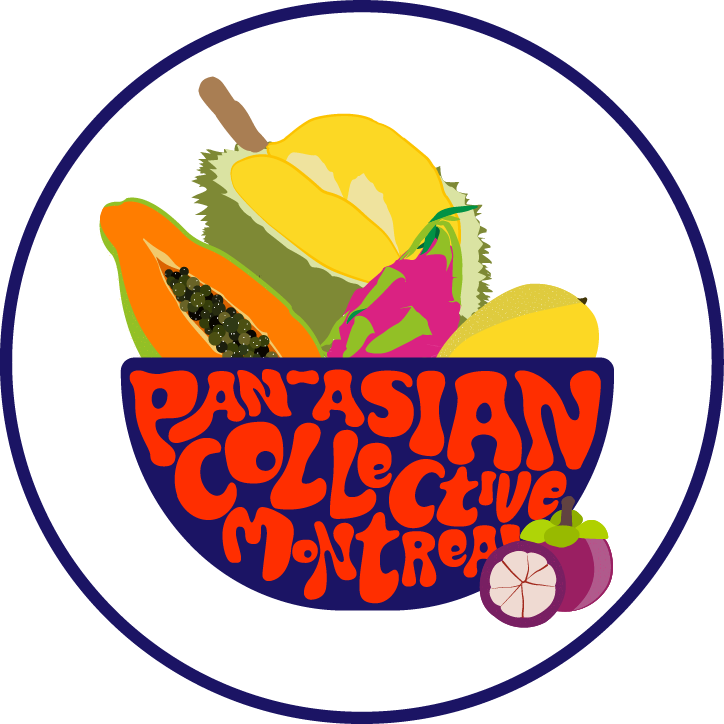For many McGill students of colour, finding inclusive and welcoming spaces can be a struggle. A lack of safe spaces can perpetuate climates where racialized students do not have the chance to build a more equitable, inclusive environment. Pan-Asian Collective (PAC) is a new community on campus that creates platforms for Asian voices in conversations that often exclude them.
In an email to the The McGill Tribune, PAC’s Communications Bottomliner Lavanya Huria, Events Bottomliner Yuan Kelly, External Affairs Bottomliner Chris Lau, and Communications and Events Team Member Chandni Patel explained how PAC started, as well as ways the organization is trying to call out and dismantle harmful norms.
“PAC started [just over a year ago] with a few friends talking about feeling like there wasn’t a space that existed at McGill for Asians to explore their identities,” Huria, Kelly, Lau, and Patel wrote. “We talked about wanting a space by and for Asians that centred learning, connecting, and showing up for our own communities, as well as others. These conversations led us to our first iterations of PAC.”
With the COVID-19 pandemic, there has been a significant rise in anti-Chinese sentiments that many students have experienced firsthand. At the same time, anti-Asian racism is often dismissed due to the false assumption that all Asian people are successful and well-adapted.
“A couple of us were really scared to leave our apartments alone, and some chose to avoid going outside altogether,” Huria, Kelly, Lau, and Patel said. “This was around the time a Korean man was stabbed in NDG. The pandemic has really brought to light an anti-Asian sentiment that has always existed but has been somewhat obscured, in part due to the [m]odel [m]inority [m]yth that has granted Asians, particularly East Asians[,] a sort of conditional belonging—a peace that can be taken away at any moment, as we saw with the onset of the pandemic.”
In response to these rising tensions, PAC has spoken out against xenophobia.
“It was important for us to use PAC as a platform to speak out against this racism using our collective voices,” Huria, Kelly, Lau, and Patel said. “PAC released a statement back in March about anti-Asian racism and violence [….] Attacks against Asian people and businesses are still happening and we would be grateful if non-Asian people gave more attention to this [….] We encourage fellow Asians to stay informed about and show up for other communities that need public support right now, namely Black and Indigenous communities on Turtle Island.”
Additionally, PAC is taking direct action to support Asian and marginalized community members. During Asian Heritage Month in May, PAC hosted open mic events to uplift Asian voices and connect the Asian community. PAC also collaborated on events with the Indian Students’ Association and the Union for Gender Empowerment on intersectional aspects of Pan-Asian identity, like being queer and Asian.
Currently, PAC is hosting a giveaway to garner support for struggling small businesses in Chinatown. PAC is also working on collaborations with the Black Students’ Network, Students for a Free Tibet, and Anakbayan Montreal on the topics of long-term activism and self-determination in Asia.
Still, Asians face challenges both within their communities and in a broader context. The aforementioned model minority myth can push them out of discussions on race and prejudice. Additionally, Asians are often targeted by companies to fulfill workplace diversity.
“The multitude of identities, ethnicities, cultures[,] and histories that exist under the Pan-Asian umbrella are hardly represented in mainstream media,” Huria, Kelly, Lau, and Patel explained. “When we are [represented], it’s often in stereotypical and harmful ways.”
PAC empowers Montreal’s Asian communities by promoting meaningful engagement in Asian history and culture in a manner that recognizes the diversity of Asian experiences. As Asians have largely been excluded from Western media and history, PAC offers students a space to be themselves without being burdened by the expectation that they represent an entire culture.
Students can follow PAC on Facebook and Instagram to get involved or to hear about their updates, events, and resources.









